Top 10 ChatGPT alternative tools for smarter conversations in 2025

Kenneth Pangan
Last edited August 12, 2025

It feels like ChatGPT has been around forever, right? It's a fantastic tool for brainstorming, drafting emails, and even knocking out some code. But the moment you try to use it for specific business jobs, like handling customer support tickets or answering internal team questions, you hit a wall. A general-purpose AI like ChatGPT just isn't trained on your company's private data, can't connect to your help desk, and often lacks the security controls your team needs.
This is where specialized tools start to make a lot more sense. A ChatGPT alternative built for business can securely learn from your data and hook into your existing workflows to automate actual tasks, not just spit out text. In this post, we'll walk you through 10 of the best alternatives out there, comparing what they're good at, where they fall short, and who they're for, so you can find the right fit for your team.
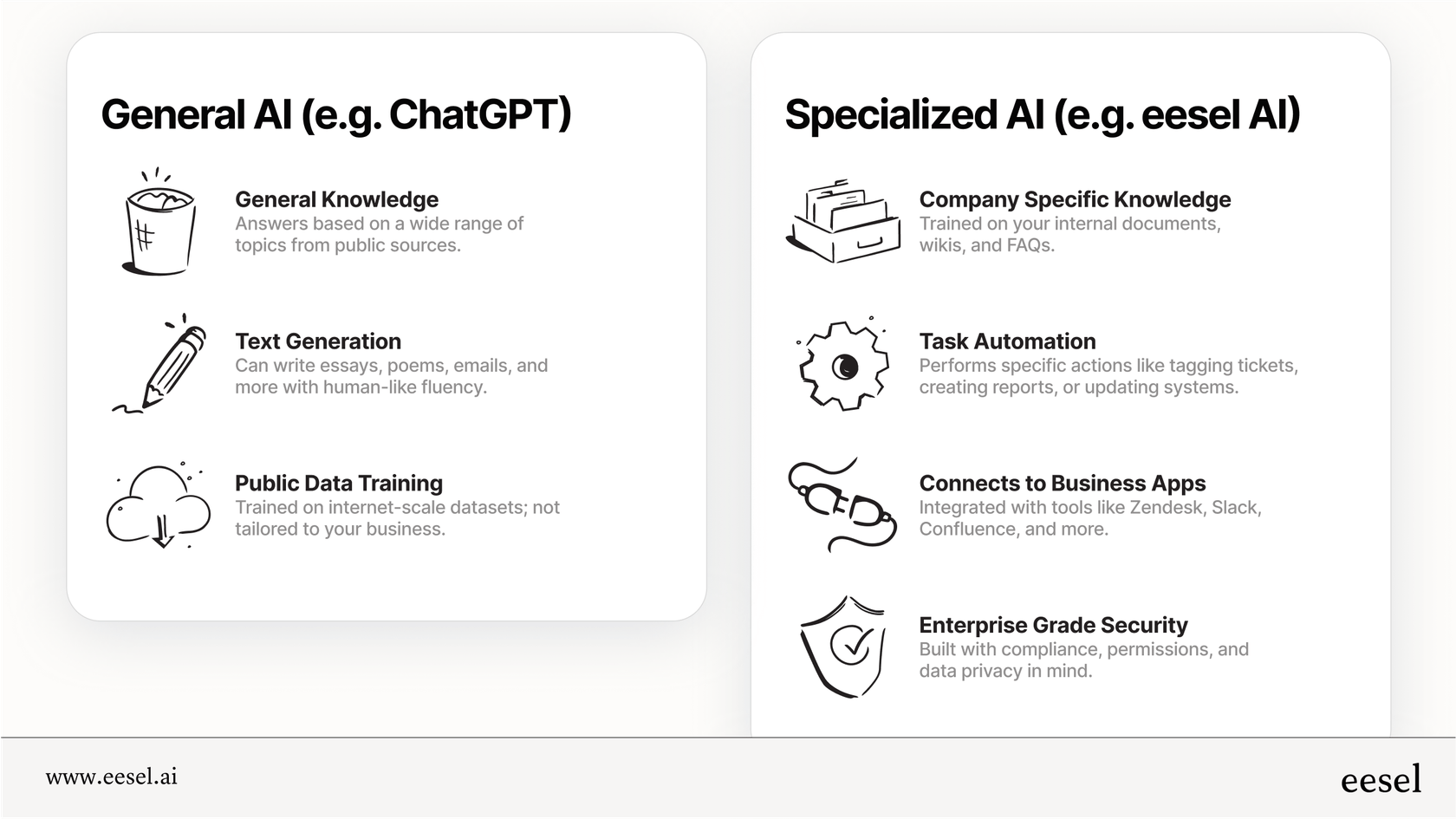
What is a ChatGPT alternative?
Simply put, a ChatGPT alternativ` is any conversational AI tool that can do what ChatGPT does (or more), but is designed for a different, more specific job. While some are just other general chatbots, the ones that are most valuable for businesses are those that solve an actual problem.
So, why would you even look for an alternative? A few key reasons usually pop up:
- You need something for a specific job. You might need an AI that's built from the ground up to automate customer service, write marketing copy that sounds like you, or pull together research you can actually trust.
- Your company's data needs to stay private. You need a tool that offers a secure environment and contractually guarantees it won't use your sensitive company info to train its public AI models.
- The AI needs to do things in your other apps. You need it to connect with and take action in systems you already use, like Zendesk, Slack, or Shopify.
- You need it to know your business. For an AI to give truly helpful and accurate answers, it has to be trained on your company's unique knowledge, like your help docs, past support tickets, and internal wikis.
How we picked the best ChatGPT alternative tools
We didn't just pull the most popular names out of a hat. We chose the tools on this list based on a few things that really matter for any business thinking about bringing in AI.
- Does it solve a real business problem? We looked for tools that go beyond just generating text and tackle a genuine business need.
- Can it connect with the tools you already use? An AI that lives on an island isn't very helpful. We prioritized tools with strong integrations.
- Does it meet business-level security standards? We checked for clear data handling policies and enterprise-grade privacy features.
- Is it easy to set up and can it grow with you? The best tools are ones your team can actually use without a computer science degree, and that won't buckle as your company expands.
Comparing the top ChatGPT alternative tools for 2025
Here's a quick breakdown of how our top picks stack up against each other.
| Tool | Best For | Key Differentiator | Starting Price |
|---|---|---|---|
| eesel AI | Automating customer service & internal support | Integrates with existing help desks; acts on your data | $239/mo (billed annually) |
| Claude | Thoughtful, long-form writing | Large context window and nuanced reasoning | $20/mo |
| Google Gemini | High-level reasoning and coding | Multimodal capabilities and deep Google integration | $19.99/mo |
| Jasper | Branded marketing and sales copy | Brand voice templates and campaign focus | $49/mo |
| Writesonic | SEO-friendly content creation at scale | Built-in SEO tools and web-connected chatbot | $49/mo |
| Perplexity AI | Verifiable research with citations | Citing sources from live web data | $20/mo |
| Notion AI | Organizing knowledge for Notion users | Deeply embedded within the Notion ecosystem | $8/user/mo (add-on) |
| You.com | Accessing multiple AI models in one interface | Multi-model chat and custom agent creation | $20/mo |
| Lindy | Automating workflows with AI agents | Visual workflow builder connecting multiple apps | $49/mo |
| Midjourney | Artistic and high-quality image generation | Advanced artistic control and unique aesthetics | $10/mo |
The 10 best ChatGPT alternative tools for your business
Now, let's get into the details of what makes each of these tools a solid ChatGPT alternative for different situations.
1. eesel AIx
eesel AI is an AI platform that works with the tools you already have to automate support. It plugs into your help desk (like Zendesk or Freshdesk), internal knowledge bases (like Confluence), and chat apps (like Slack) to handle frontline support, give your agents a hand, and answer internal questions.
Unlike a general chatbot, eesel AI is built for action. It securely learns from your private business data, like past tickets, help articles, and internal docs, to give you accurate, relevant answers. But here's the key difference: it can actually perform tasks. It doesn't just chat; it resolves issues by triaging tickets, updating customer records, or looking up order details from Shopify. This ability to take action inside your existing software is what separates it from AI that only knows how to talk.
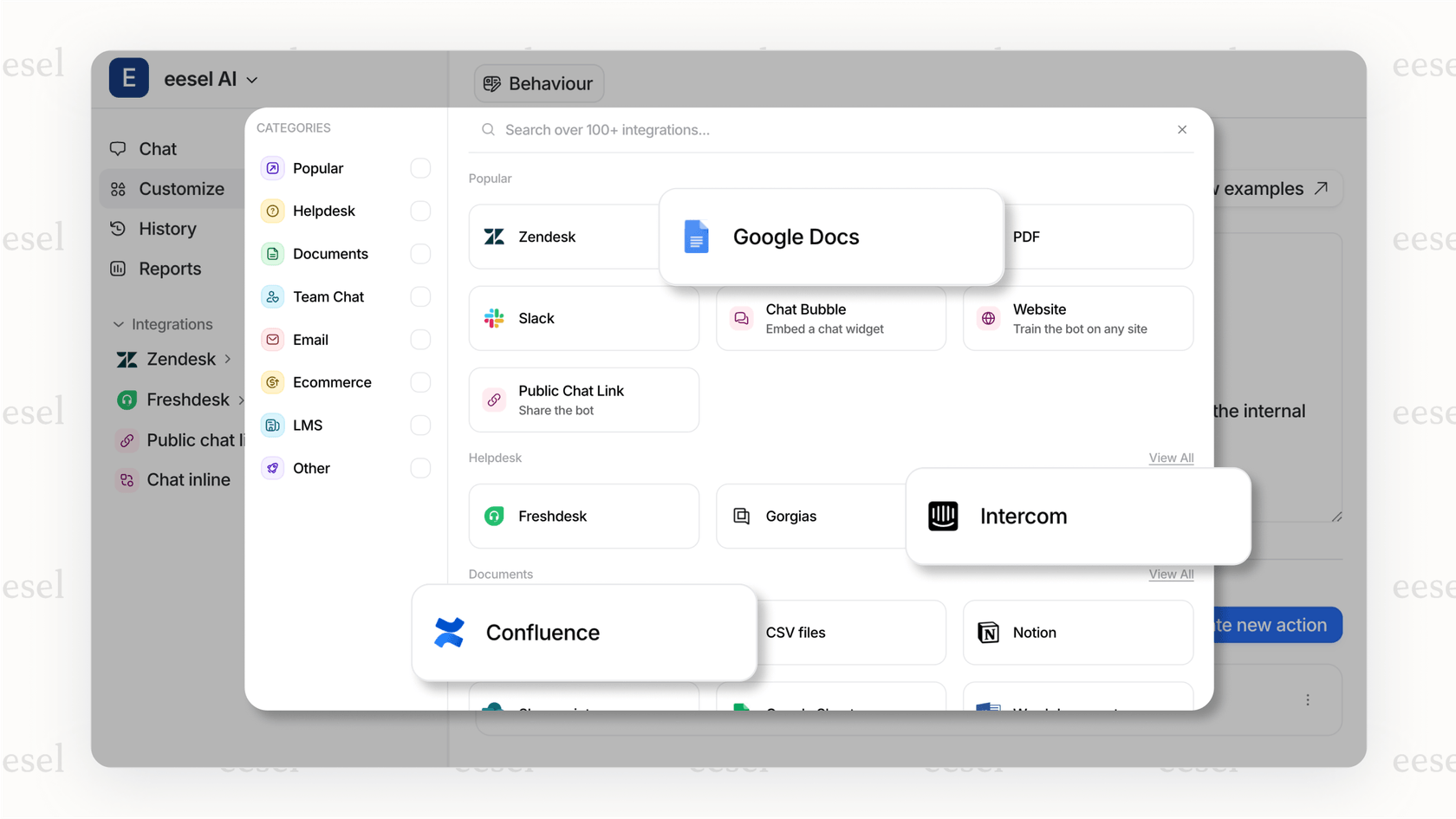
Pros:
- It works with your existing tools, so you don't have to switch your help desk or wiki.
- It learns from your own secure business content, which makes its answers highly accurate.
- It can take action through APIs, not just spit out text.
- It comes with a full set of tools: AI Agent, AI Copilot, AI Triage, and embeddable Chatbots.
- A simulation mode lets you test its performance on your past data before you ever turn it on for customers.
Cons:
- It's very focused on automating business processes, so it's not the tool for general creative writing.
- Its pricing is based on how much you use it, so you'll need to estimate your volume.
Pricing: The team plan starts at $239/month when billed annually.
2. Claude
Claude is an advanced AI chatbot from Anthropic, known for being great at reasoning and handling huge documents. Its massive "context window" (meaning it can remember a lot of information at once) makes it perfect for heavy-duty writing. You can feed it entire books, dense research papers, or long project docs and ask it to summarize, analyze, or draft detailed reports. It produces nuanced, well-structured text that often feels more thoughtful than other models.
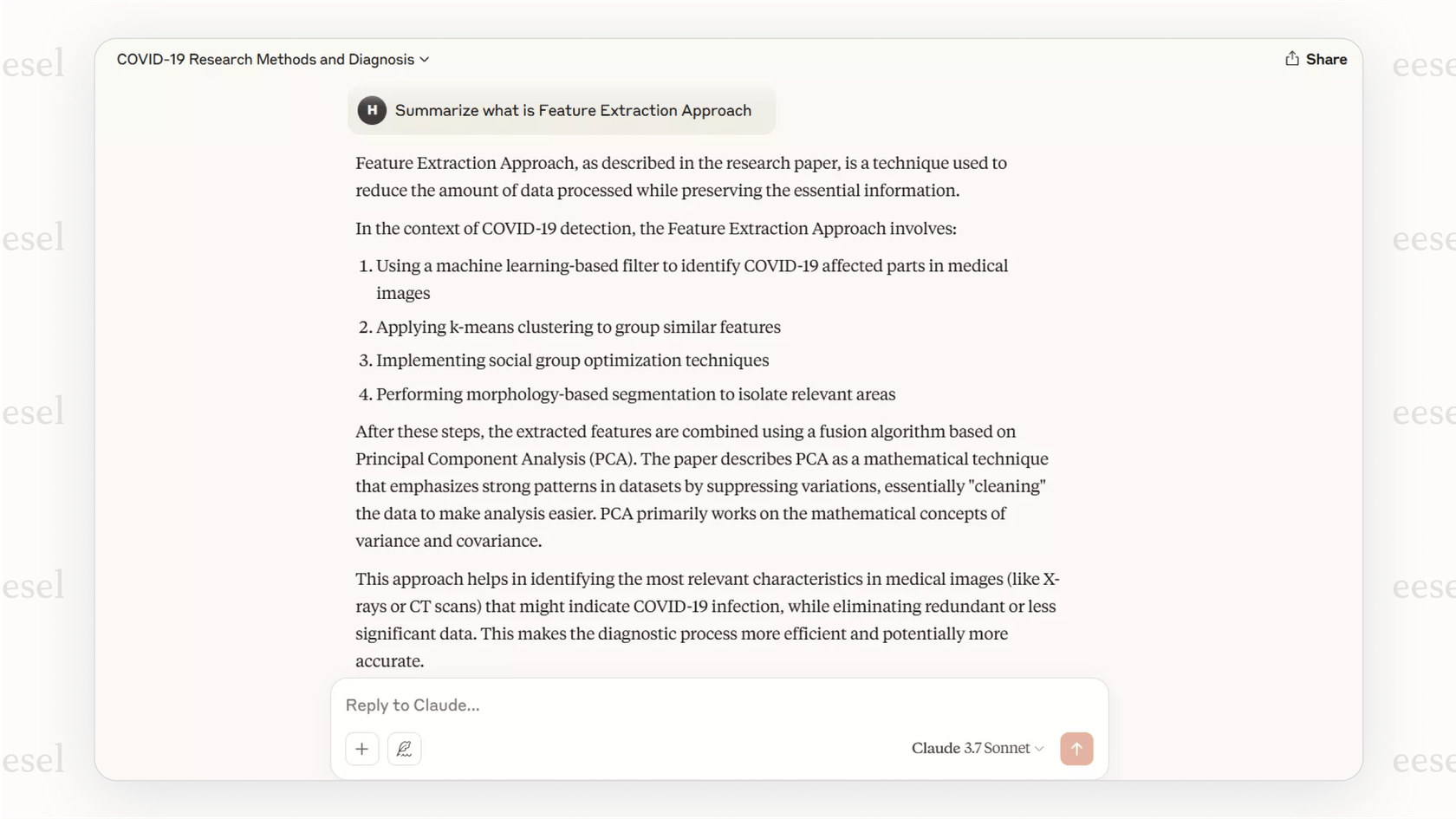
Pros: Great for tricky writing and analysis tasks, and it's built on a strong ethical framework.
Cons: It's not built for automating workflows and can't connect to business tools like help desks to actually solve problems.
Pricing: A free version is available. Paid plans start at $20/month.
3. Google Gemini
Gemini is a powerful AI from Google that works with text, code, images, and video all at once. Because it's built right into Google's world (think Docs, Sheets, and a powerful search connection) and has impressive coding skills, it's a solid choice for developers, data analysts, and other technical folks. It can spin up entire applications from one prompt, which is amazing for building prototypes and solving complex problems.
Pros: Fantastic for coding and complex, multi-step thinking. It also works with different types of media out of the box.
Cons: It can feel a bit locked into the Google ecosystem, and it's not designed for automating business support tasks.
Pricing: A free version is available. Gemini Advanced starts at $19.99/month.
4. Jasper
Jasper is an AI platform that is all about helping marketing and sales teams pump out on-brand content. Its "Brand Voice" feature is its killer app. It can learn your company's style, tone, and key messages just by scanning your website. This helps ensure that every blog post, ad, or social media update it generates sounds like it came from your team, keeping your brand voice consistent.
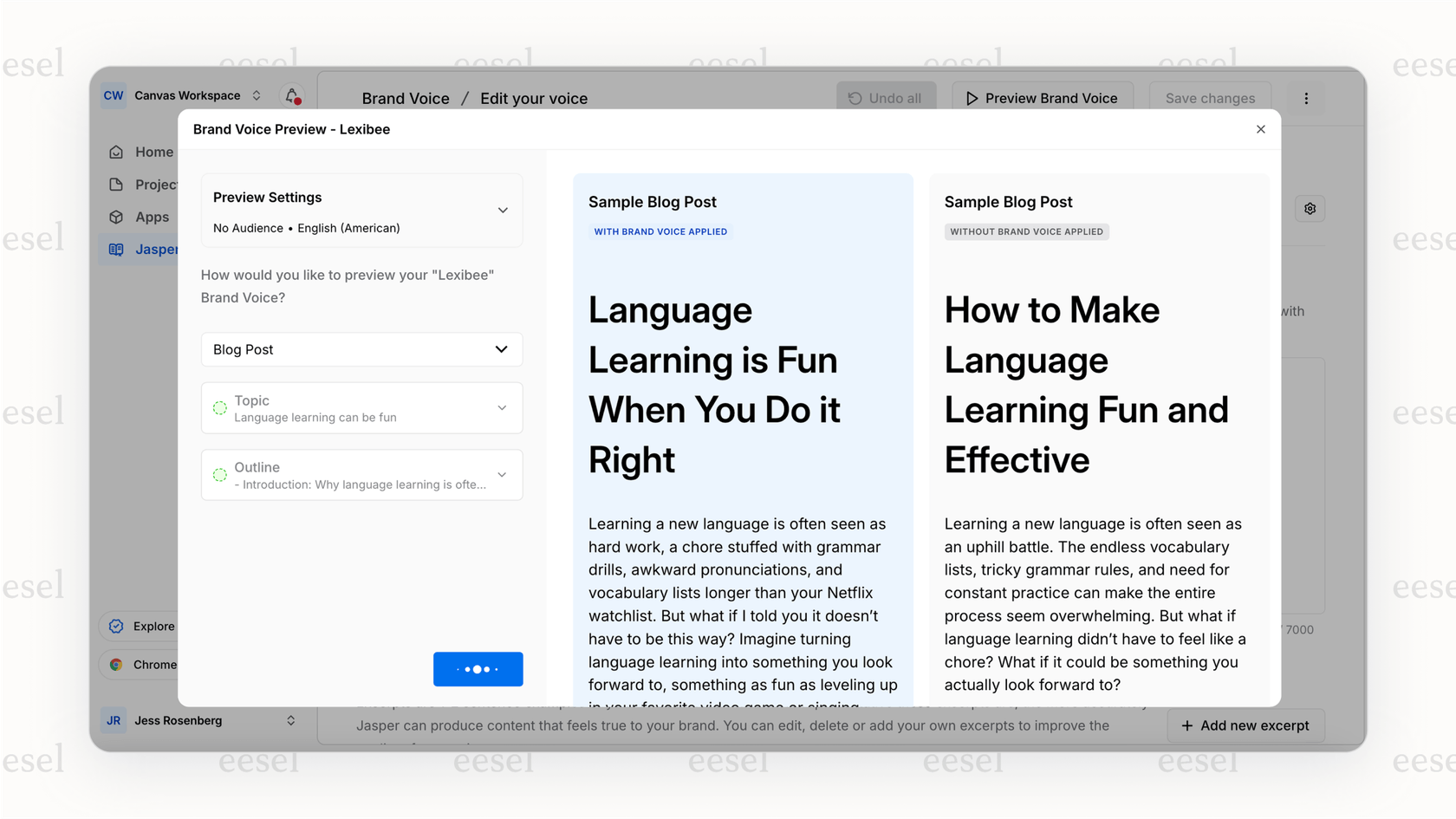
Pros: Has a strong library of templates for marketing content and is great for maintaining brand consistency.
Cons: Its image generation isn't as good as other tools. It's also not a great fit for internal or customer support, where automating workflows is more important.
Pricing: Plans start at $49/month.
5. Writesonic
Writesonic is an AI writing assistant that combines quick content creation with a bunch of SEO tools. It connects to the web for up-to-date information and works with popular SEO software, making it a favorite for bloggers and content marketers. You can give it a topic and a few keywords, and it can whip up a full, SEO-friendly article in minutes, complete with headers and a meta description.
Pros: Built-in SEO features help you create content that actually ranks. It's great for drafting full articles fast.
Cons: The articles it writes usually need a good amount of human editing to feel polished and original. It's not built for interactive, real-time support.
Pricing: There is a limited free plan. Paid plans start at $49/month.
6. Perplexity AI
Perplexity AI is a conversational search engine that gives you answers and shows you its work by citing its sources. This makes it a fantastic ChatGPT alternative for any task that needs to be factually accurate. Whether you're doing academic research, checking a claim, or writing a report that needs sources, Perplexity lowers the risk of AI "hallucinations" by showing you exactly where it got its information.
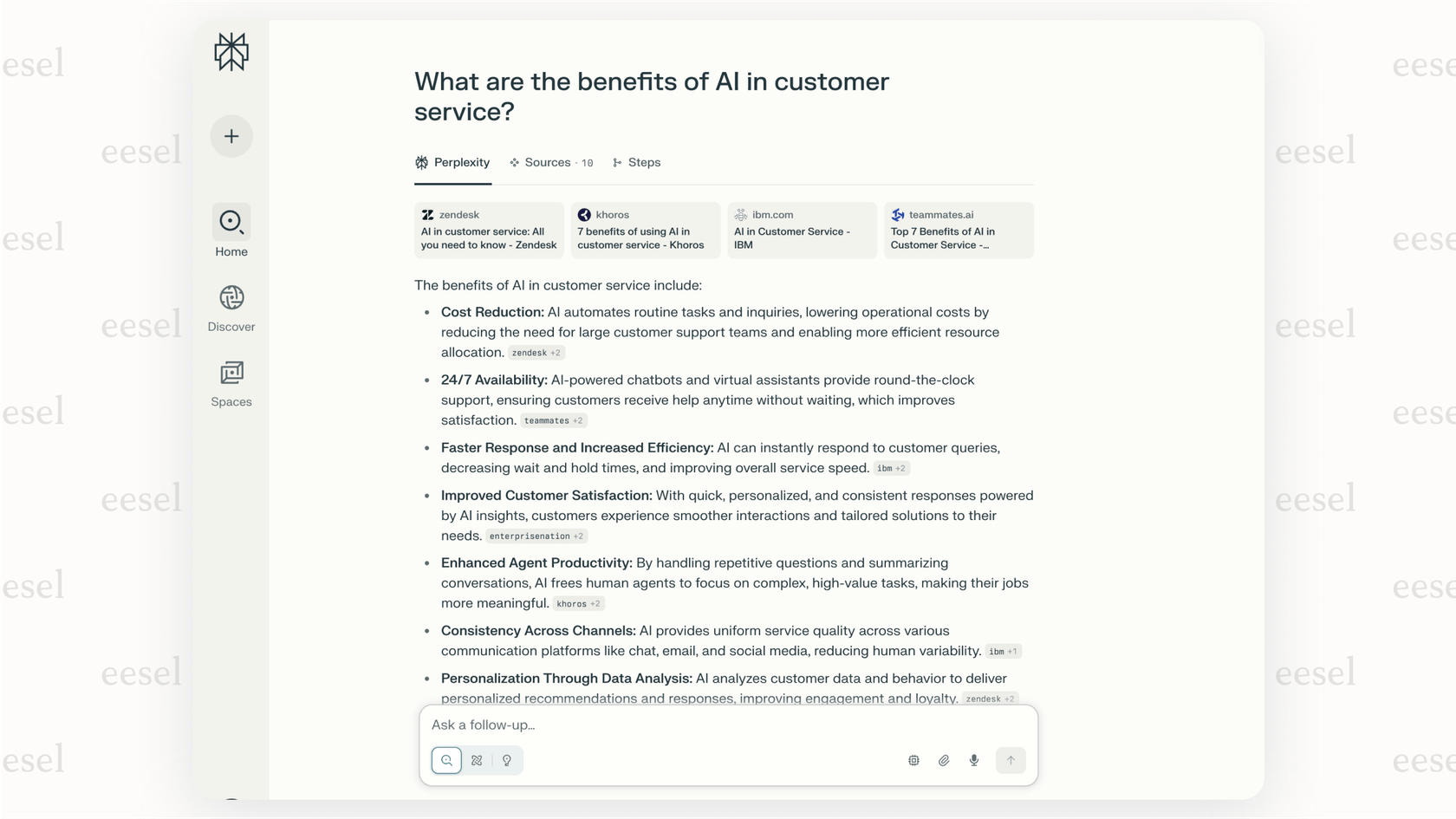
Pros: Cited sources make its answers trustworthy and easy to verify. It's fantastic for research.
Cons: It's a search and answer tool, not an automation platform. You can't use it to take action in your other apps.
Pricing: A free plan is available. The Pro plan is $20/month.
7. Notion AI
Notion AI is an assistant built directly into the Notion workspace. If your team already lives and breathes Notion, its AI is a huge help. It can instantly summarize meeting notes, brainstorm ideas on a blank page, and even fill out database fields based on your content. It's great at streamlining documentation and managing knowledge without ever leaving the platform.
Pros: For people who use Notion all the time, the integration feels completely natural.
Cons: Its biggest downside is that it only works inside Notion. It can't automate tasks in external apps like a help desk or CRM.
Pricing: It's available as an add-on for $8/user/month to any paid Notion plan.
8. You.com
You.com is an AI assistant that lets you swap between different AI models (like GPT-4, Claude, and Gemini) all in one place. It saves you from juggling multiple AI subscriptions and allows you to pick the best model for whatever you're doing. Need to write creative copy? Switch to Claude. Need to generate some code? Flip over to Gemini. This makes it a super flexible option for power users.
Pros: Gives you access to several top-tier AI models in one subscription. You can also build your own custom AI agents.
Cons: It lacks the deep, native integrations needed for true business automation. It's a hub for conversations, not actions.
Pricing: A free plan is available. The Pro plan starts at $20/month.
9. Lindy
Lindy is a tool for building AI "agents" that automate business tasks without any code. It nicely bridges the gap between a simple chatbot and a full-blown automation tool like Zapier. You can create "Lindies" that connect to different apps to do things like schedule meetings, update your CRM, or process invoices, all started with a simple chat message.
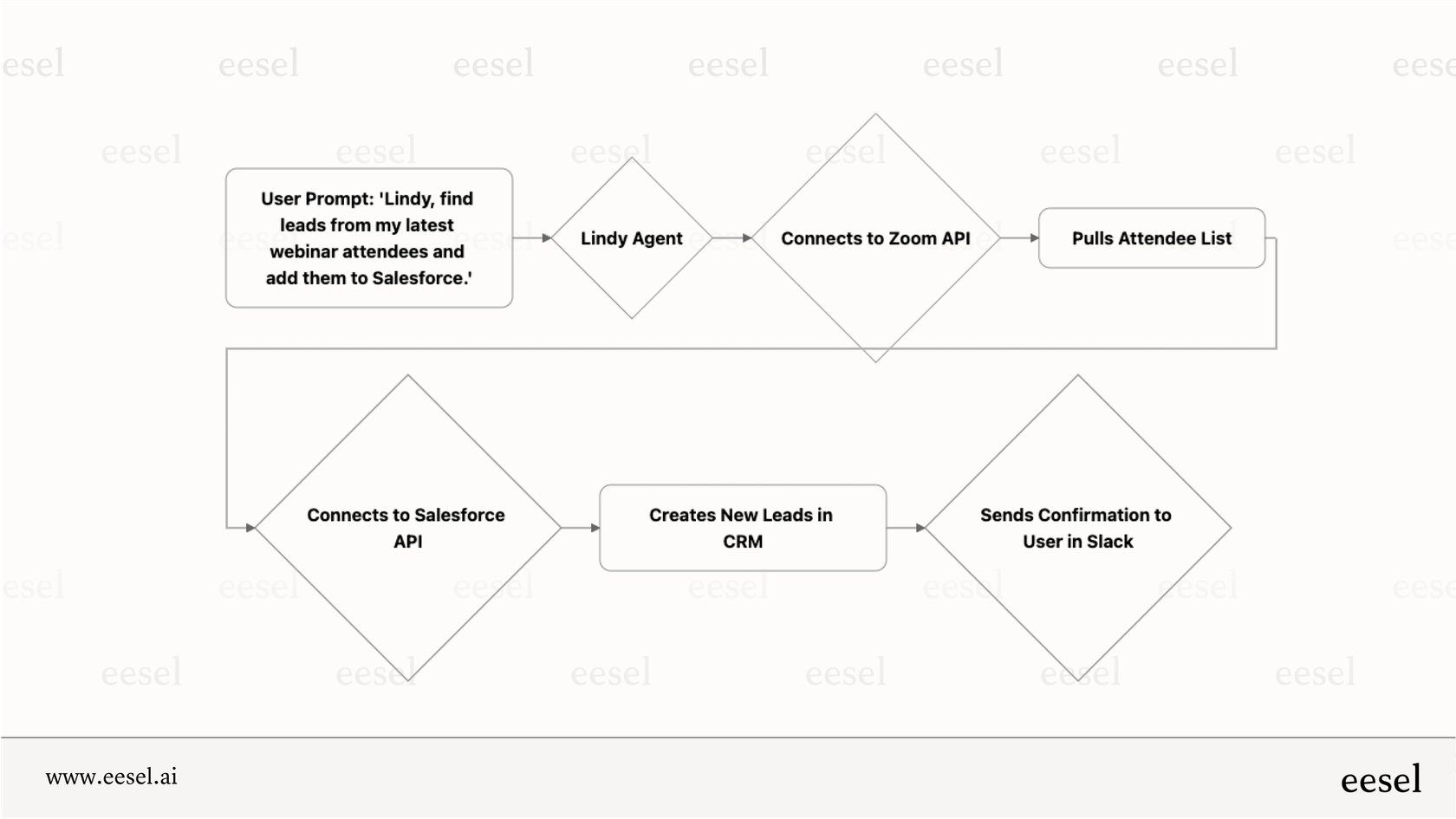
Pros: It's powerful for automating complex workflows across multiple apps without writing code.
Cons: It takes a bit longer to learn than simpler tools. It's also not really built for customer support scenarios where a human might need to jump in.
Pricing: Plans start at $49/month.
10. Midjourney
Midjourney is a leading AI image generator known for producing stunning, artistic, and incredibly detailed visuals from text prompts. While it's not a chatbot, it's an essential ChatGPT alternative for creative teams. For anyone who needs best-in-class visuals for marketing, design, or content, Midjourney's output often has a quality and artistic flair that beats DALL-E 3 (the model inside ChatGPT).
Pros: Produces exceptionally high-quality and artistic images with a unique look.
Cons: It runs mostly through a Discord interface, which can feel clunky. It's a pure image generator, not a conversational or productivity tool.
Pricing: There is no free plan. Subscriptions start at $10/month.
How to choose the right ChatGPT alternative for your business
Feeling a bit overwhelmed by the options? Here are a few tips to help you pick the right one.
- Figure out what you really need it for. Are you mainly writing marketing copy (Jasper), doing deep research (Perplexity), or automating customer support ? Choose a tool that's built for your most important job.
- Check if it connects with your other tools. Make a list of your team's must-have software (your help desk, CRM, chat platform, etc.). A tool that can't talk to them isn't going to automate much. This is where platforms like eesel AI shine, since they're built to plug right into the software you already use.
- Don't mess around with security and privacy. For any business, this is non-negotiable. Make sure the provider has clear data policies, contractually agrees not to train public models on your data, and offers security features like data encryption.
- Test it out with your real data. The best way to know if an AI will work is to try it in a safe environment. Look for tools that offer a trial or simulation. eesel AI's simulation mode, for instance, runs the AI over your historical support tickets to show you exactly how it would have performed.
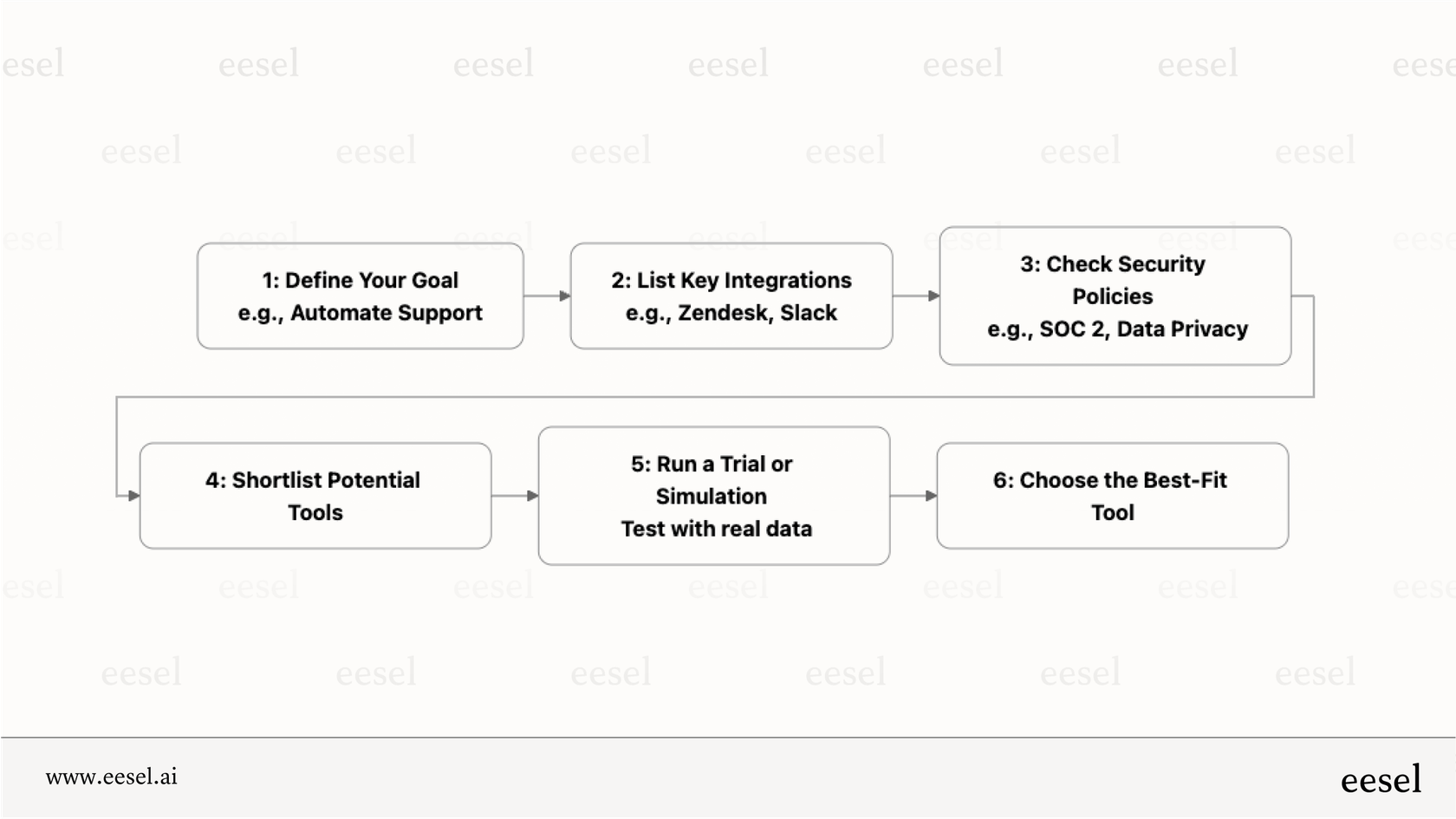
The bottom line: Choosing a smarter ChatGPT alternative
While ChatGPT is an incredibly versatile tool, the best ChatGPT alternative for your business really depends on your goals. For creative writing, brainstorming, or general research, tools like Claude or Perplexity are excellent choices.
However, for teams who want to get more efficient, automate tedious workflows, and improve customer support with an AI that understands your company inside and out, a specialized platform is the way to go. A tool that connects to your systems, learns from your data, and takes action on your behalf is what actually makes a difference in your day-to-day work.
eesel AI provides an integrated, secure, and powerful solution that works with the tools you already use to automate support and empower your team. Start your journey with eesel AI or book a demo today.
Frequently asked questions
A paid ChatGPT alternative designed for business offers crucial features like enterprise-grade security, privacy guarantees, and the ability to integrate with your existing software. This allows it to perform specific, automated jobs rather than just having general conversations.
Look for a provider that transparently shares its security policies, is SOC 2 compliant, and contractually guarantees it won't use your data for public model training. Business-focused alternatives prioritize data encryption and provide a secure, private environment for your information.
A specialized tool like eesel AI integrates directly with your help desk and learns from your past support tickets and knowledge bases. This allows it to not just chat, but also take action to resolve issues, providing much more accurate and relevant support than a general AI.
When an AI is trained on your specific help articles, past tickets, and internal wikis, it gains the context needed to provide accurate answers. This prevents the generic or incorrect "hallucinations" that can happen with models that lack your company's unique knowledge.
Share this post

Article by
Kenneth Pangan
Writer and marketer for over ten years, Kenneth Pangan splits his time between history, politics, and art with plenty of interruptions from his dogs demanding attention.





